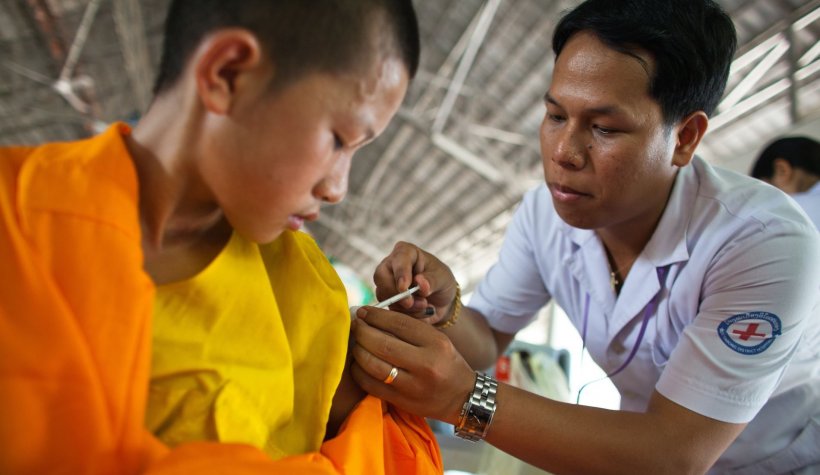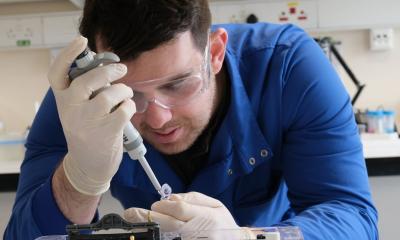
Image source: CDC/Athit Perawongmetha
News • Public health worldwide
Sharing Covid-19 vaccines between nations: a mathematical approach
New research from the University of Oxford and the UK Centre for Ecology & Hydrology uses mathematical modelling to determine the most equitable way to share vaccines between nations.
The researchers published their findings in Frontiers in Public Health.
Vaccines provide a route to achieving high levels of immunity against SARS-CoV-2 across populations, and provide a route to reopening economies, tourism, and livelihoods. However, vaccine resources amongst nations are unequal, which raises questions – both mathematical and ethical – about how best to share vaccines.
Our work [...] raises ethical issues on the value of lives between nations and argues for greater attention in vaccine sharing policies
Mike Bonsall
Researchers have developed a simple disease model, mapping travel between two nations and asking what the optimal way to deliver vaccinations is, assuming Nation A is producing vaccine and Nation B isn’t. Even with extensive travel, Nation A can minimize deaths by simply retaining vaccine and aiming to fully inoculate its population. However, if the goal is minimising total deaths across all nations, by not initially sharing vaccines between nations in order to protect the population of Nation A, this causes more deaths in Nation B than lives saved in Nation A.
Lead author, Dr Chris Huntingford of the UK Centre for Ecology & Hydrology (UKCEH) said ‘For any nation producing a vaccine, the way to minimise deaths in that country is to retain them and inoculate as many citizens as possible. However, if that nation approaches herd immunity, then overall more lives will be saved by sharing vaccines with other countries.’ Senior author, Prof Mike Bonsall (Dept of Zoology) said ‘Our work raises important issues on the quantitative nature of vaccination strategies and how to share vaccines. More importantly, it raises ethical issues on the value of lives between nations and argues for greater attention in vaccine sharing policies.’ Prof Bonsall is continuing to work on mathematical models about vaccine and lockdown strategies.
Source: University of Oxford
16.08.2021





